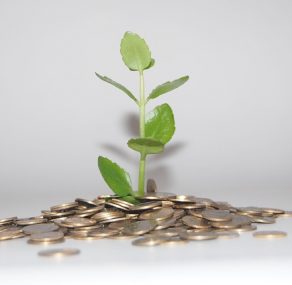How Much Money Will You Have When You Retire?

After the month of October this year, many news outlets mentioned the relief of getting through the month without any devastating volatility that it is known to have due to other crashes such as the crash that started the Great Depression and Black Monday in the 80s. And many even consider the 2008 crash to be lumped into the group through it happened on September 29th. Even last year, in October, the market fell more than 1 thousand points in the span of 2 days.
With this track record, it makes October the most volatile for stocks in over a hundred years.
However, now that October is out of the way, what does that mean? Those that are still invested in the market, whether on their own or through some work plan, still have a risk as always. But they all usually have the same question, which is what their balances will be one they start to make withdrawals from their accounts.
And the answer to that will either have you living quite comfortably during retirement or quite the opposite. But that answer really cannot be answered by anybody, no matter what they might say.
What’s unfortunate is that investing in the market also has your health involved as well. There has been data that reveals that even small market downfalls have been the causes of illnesses, tragic vehicular accidents, and death. It was discovered that having even 10 percent of your net worth in shares can seriously increase your chances of premature death or serious health issues such as anxiety, depression, or high blood pressure.
Another way that your health is invested in what your balance will be when you need to touch your nest egg is when you may need to pay medical costs that are not covered by Medicare. These costs that you pay out of pocket can be around $285K for seniors, and the amount keeps rising as time goes on. Having long-term care, such as home care or nursing home care, can be an additional couple of hundreds of thousands of dollars. The thing is the average retiring married couple has only a quarter of that stashed away.
According to the American Psychological Association, the leading cause of stress for Americans is money. This kind of stress is connected to problems with insomnia, depression, cardiovascular disease, and anxiety.
The Association stated a couple of years back that since they started their survey in 2007, money has always been the number one reason for the cause of stress.
As of recent, elections for presidency and shootings have been taking the number one spot for the cause of stress, but financial matters are always a problem for many.
According to a survey done by Northwestern Mutual, being financially secure is the number one component to having a good view on life. 9 in 10 people believe that having their finances on track makes them the happiest.
However, investors tend to put a high percentage of their savings in the market with high risk.
Currently, we are over ten years into what is the longest bull market ever recorded. Unfortunately, history has shown us the bull market before that was running the longest ended destructively. The previous two market crashes took out at least half of a stockholder’s savings since the start of this century.
Though no one can pinpoint the when, the why, or how bad the consequences will be, it will still be a surety that it will happen.
So that question on how much you will have in savings when you need it…
If you have your retirement savings within an account that follows the market, this cannot be answered.
Even government retirement plans will not be able to ensure an amount.
This is why you may want to consider diversifying your investments by putting some money into guaranteed and secure assets. By doing so, you will have an amount the question.







